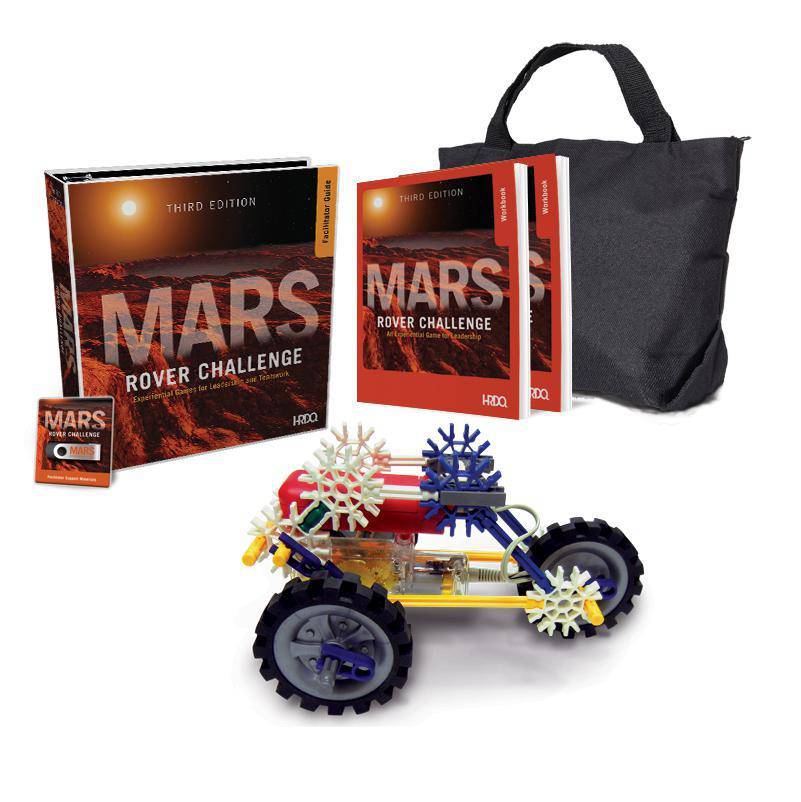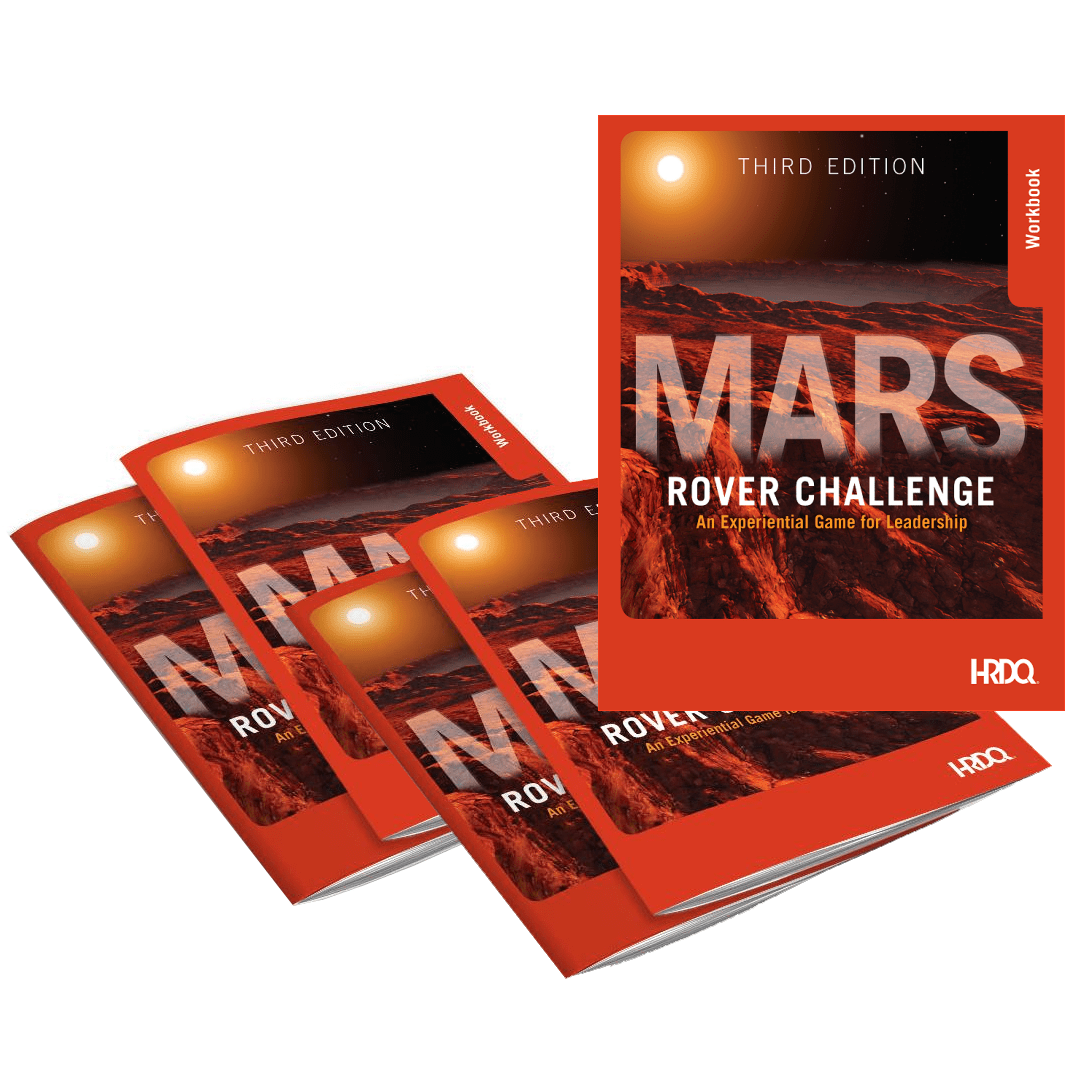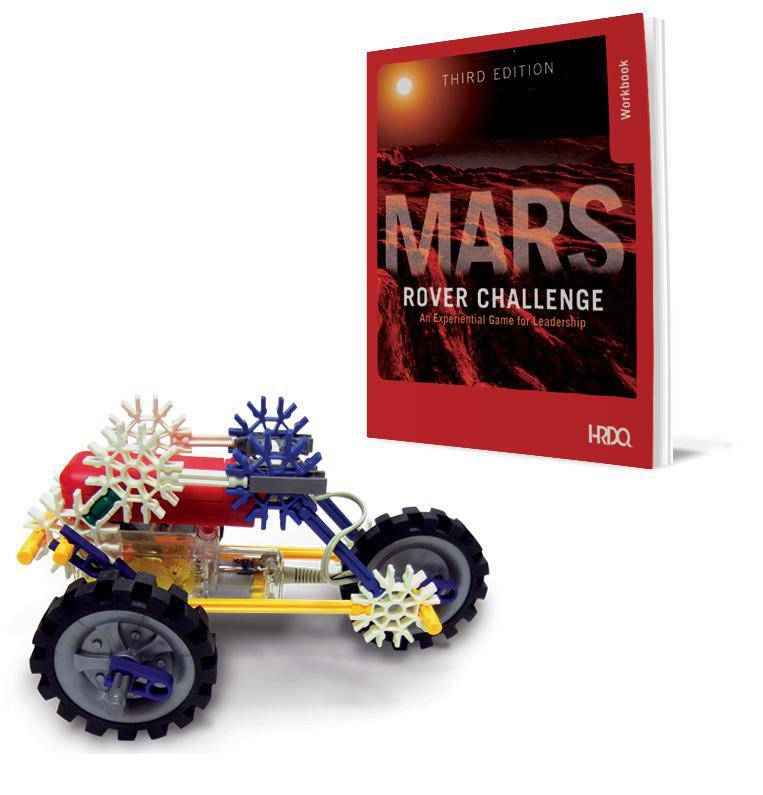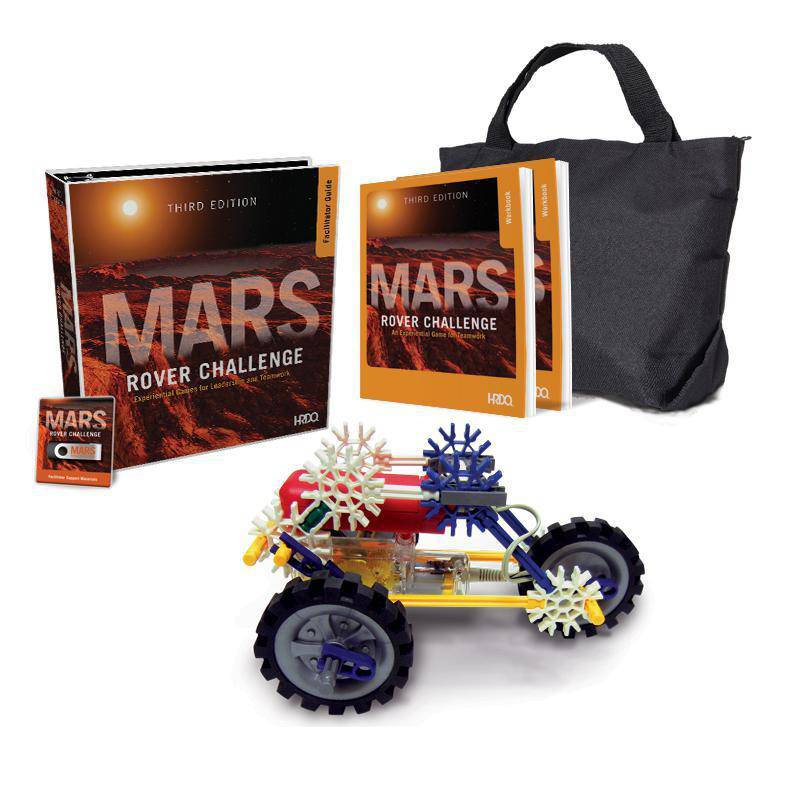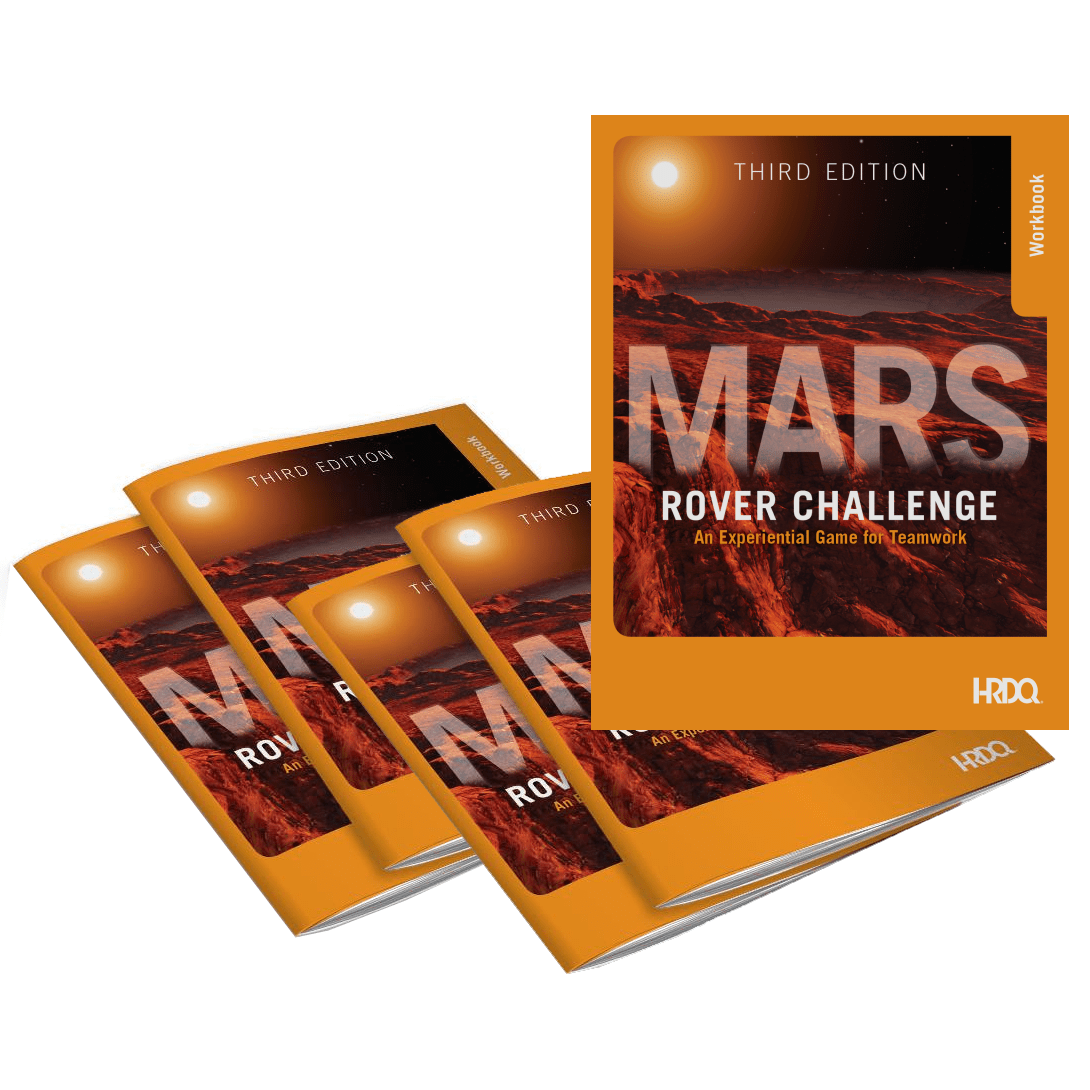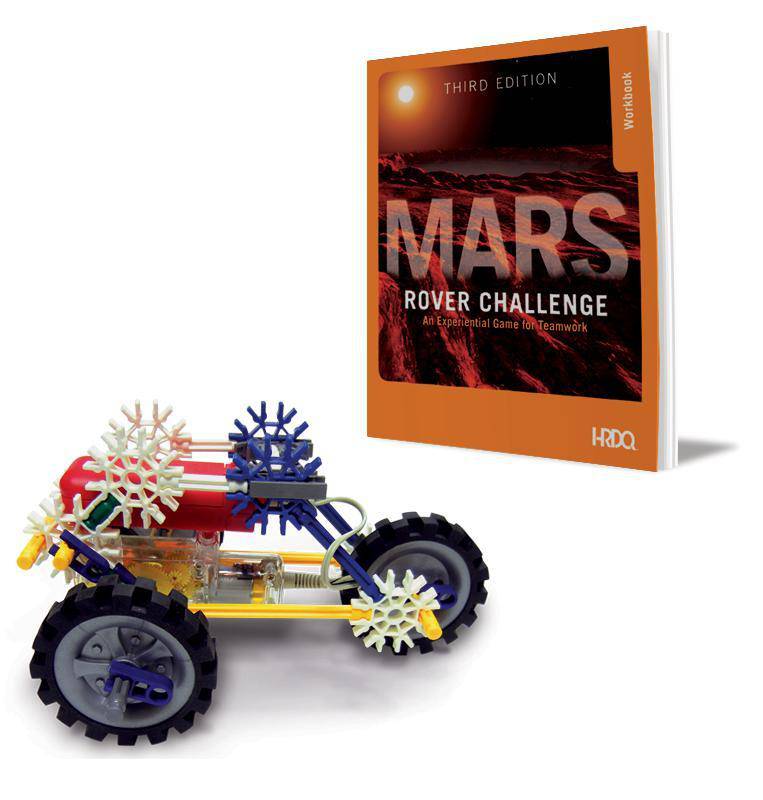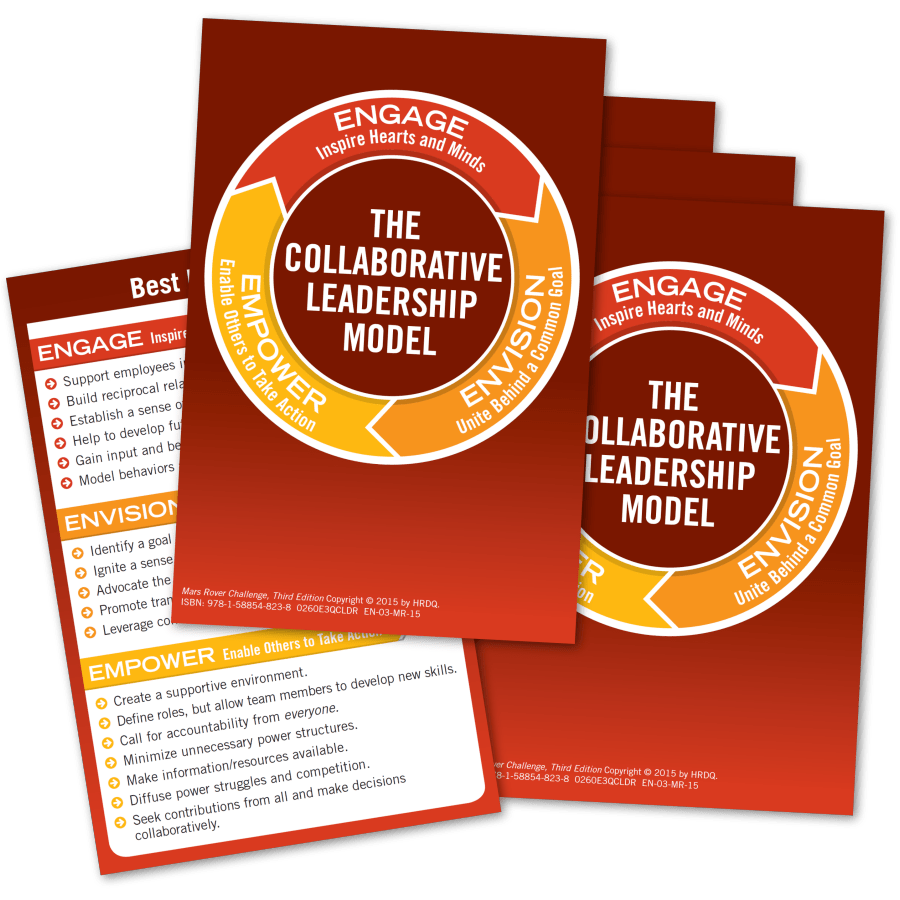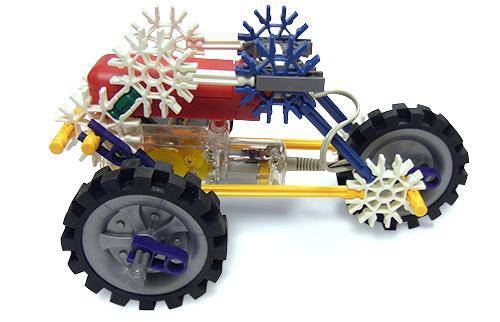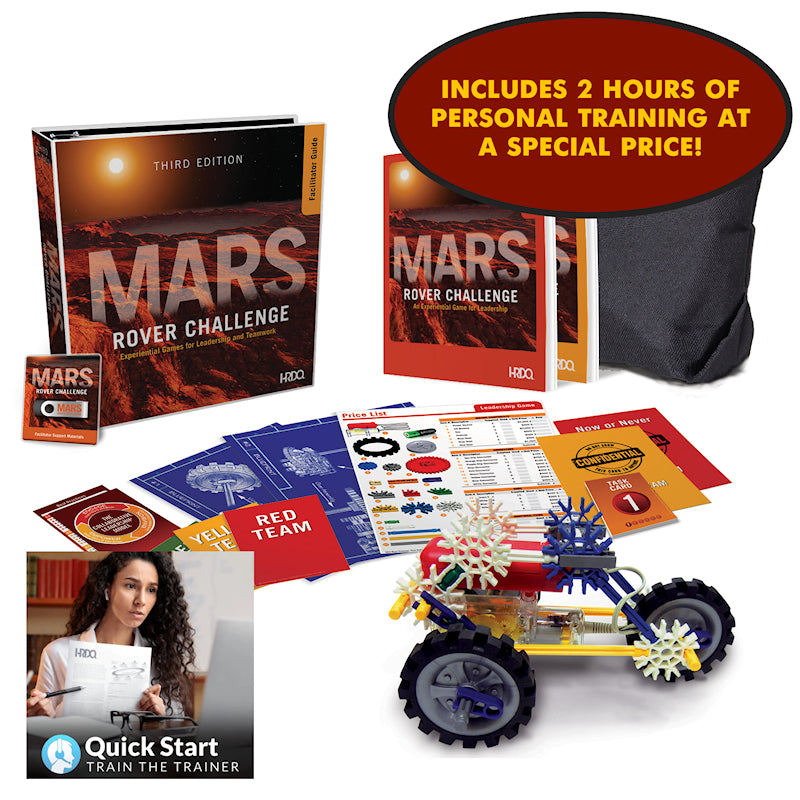Mars Rover Challenge
Mars Rover Challenge
You don’t have to leave Earth for out-of-this-world skill development. The Mars Rover Challenge is a hands-on, high-energy team-building experience where collaboration isn’t optional – it’s mission critical. Help your teams develop the skills they need to succeed today with Mars Rover Challenge.
Overview
Overview
Collaboration can’t be occasional anymore – today’s teams need the skills to work together effectively, every time. Mars Rover Challenge is one of the best team-building activities for workplace collaboration and cohesion.
Mars Rover Challenge helps teams collaborate more effectively, sparks innovative problem solving, and inspires a more cohesive, efficient workplace to drive better results across every company initiative.
How It Works
How It Works
The Mars Rover Challenge provides a compelling demonstration of the differences between working collaboratively and working in silos, both on the contributors themselves and on the quality of work they produce.
This powerful contrast is accomplished by having teams build and rebuild a motorized prototype of a vehicle designed to travel on Mars using KNEX construction pieces.
In the first round, team members operate in isolation; in the second, they join forces and work as a collaborative team.
Two versions of the game are available. In the Leadership Version, participants work in teams to construct a rover, led by a team member who (unknown to the rest of the team) adopts one of three contrasting leadership styles: traditional (command-and-control), passive, and collaborative. Each of the three styles spark very different feelings and emotions among team members.
The Teamwork Version again calls for participants to work in teams, only this time the game is played in two rounds.
In round one, participants simulate working in siloed departments as they build the rover. In round two, they work together collaboratively. The end result in each round is usually markedly different, and the process and outcomes make for lively discussion and quite a few "ah-has!"
Together, both versions provide a very real demonstration of the effects different styles can have on morale, motivation, and performance.
Learning Outcomes
Learning Outcomes
By completing the Mars Rover Challenge experience, participants will do the following:
- Practice functioning in silos and contrast this experience with working collaboratively
- Understand why silos weaken team performance and undermine the overall organization
- Explore why building collaborative teams is the best approach for longterm success
- Create an individual plan to minimize silos and increase collaboration
Uses and Applications
Uses and Applications
The Mars Rover Challenge is one of the best team-building activities for workplace leaders because it is designed to introduce new leaders and expose experienced leaders to the benefits of facilitative leadership.
It's an ideal learning experience for:
- New leaders who want to incorporate facilitative leadership into their developing style
- Traditional leaders who are being retrained to move toward a more facilitative style of leadership
- Managers who oversee teams
- Illustrating the differences between groups and teams
- Rejuvenating established teams who have reverted to "group work" habits
- Encouraging team members to assume team roles and responsibilities
- Building collaborative teams
Both versions are the perfect team-building activity for workplace collaboration.
While each game has been designed to function independently, using them in tandem presents a more thorough, holistic picture of collaboration and the positive effects it has on employee engagement and productivity.
What to Order
What to Order
Deluxe Leadership and Teamwork Game Kit
Order one kit for both the leadership and teamwork game kits. Included in the kit are the Leadership version, which has enough for 18 participants, and the Team version, which has enough for 18 participants as well.
- Facilitator Guide
- 36 Workbooks
- Three Game Parts bags
- Six blueprints
- 18 price lists with a PDF file that can be printed from the downloadable facilitator materials
- One set of three leader role cards
- Three sets of six task cards
- One set of three now or never cards
- One poster
- One set of three team color cards
- 19 HRDQue cards
- One bag of extra K-NEX pieces
- One tote bag
All components except for the participant workbooks are reusable. Additional Leadership or Team Participant Workbooks may be purchased separately.
Leadership Game Kit
Order one kit to train three teams of five players. The Leadership Game Kit includes all of the required components to facilitate the game, as well as an initial supply of workbooks for up to 18 participants. For sessions with more than three teams, you may order an extra team pack.
Leadership Workbook 5-Pack
Order one pack for up to five participants. Participants are responsible for recording all of their results in each area in their Leadership Workbook. Let participants compare their results to those from the first round and determine how much their performance improved (or declined).
Leadership Extra Game Pack
Order one for up to five participants. Order an additional leadership game pack if you need to train more participants. Also includes an additional set of workbooks.
Teamwork Game Kit
Order one kit to train three teams of four to seven players. The Teamwork Game Kit includes all of the required components to facilitate the game, as well as an initial supply of workbooks for up to 18 participants. For sessions with more than three teams, you may order an extra team pack.
Teamwork Workbook 5-Pack
Order one pack for up to five participants. Participants are responsible for recording all of their results in each area in their Teamwork Workbook. Let participants compare their results to those from the first round and determine how much their performance improved (or declined).
Teamwork Extra Game Pack
Order one kit to train three teams of four to seven players. Order an additional teamwork game pack if you need to train more teams of 4-7 players. Also includes an additional set of workbooks.
HRDQue Cards 5-Pack
Order one pack for up to five participants. Each team requires an HRDQue Card Set with six cards containing the key steps for assembling the Rover. In the first construction round, the cards are confidential, and each team member draws one and completes the specified task individually. In the second construction round, team members share their cards with one another.
Extra Parts Bag
Looking for replacement parts for your rovers? The extra game bag includes reusable parts for an additional rover. Sorry, we do not offer individual rover pieces.
Author Info
Author Info
Eileen M. Russo, Ph.D., is former vice president of research and development for HRDQ. She has a Ph.D. in social psychology with a minor in organizational behavior and an MS in social psychology from the University of Pittsburgh. Dr. Russo has a BA in psychology from Fairfield University. Her work includes research in social influence, group behavior, decision making, and perceptions of control at work. As vice president of research and development, she was responsible for overseeing the development of HRDQ products.
Matthew Eckler is a former research associate for HRDQ. He specializes in assessment development and redesign. He received a BS in communications media with an emphasis in organizational communication from the Indiana University of Pennsylvania. His areas of expertise are process improvement, survey instrumentation, and educational needs assessment.
Focus: Leadership
Type: Game
Delivery: Print
LENGTH: Simulation: 15 minutes | Workshop: 4.5 hours
Share

